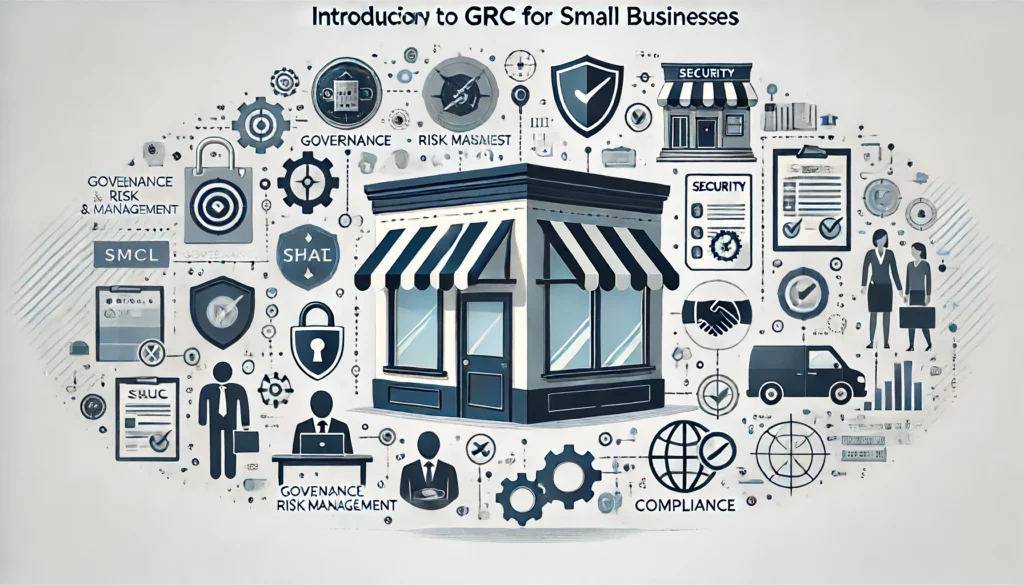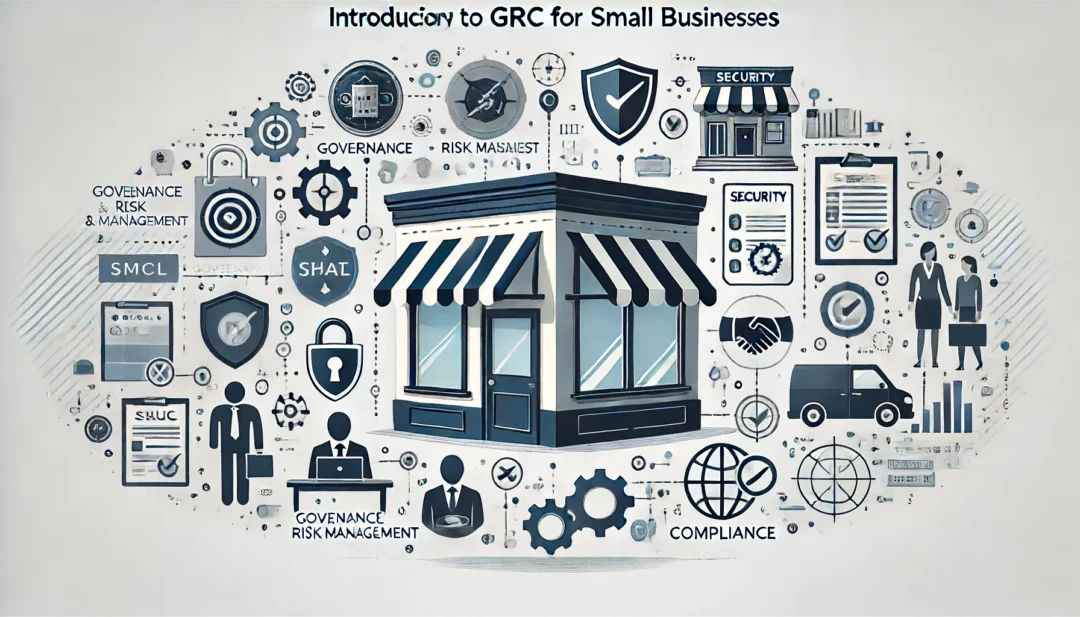
Introduction to GRC for Small Businesses
Mastering GRC: Empowering Small Businesses to Navigate Governance, Risk, and Compliance with Confidence
Introduction
In today’s rapidly evolving digital landscape, small businesses face unique challenges and risks that can significantly impact their operations and reputation. Governance, Risk Management, and Compliance (GRC) provide a structured approach to manage these challenges effectively. For small businesses, adopting frameworks like Cyber Essentials and Cyber Essentials Plus can be a game-changer. These certifications not only enhance security but also build trust with customers and protect the supply chain.
What is GRC?
Governance, Risk Management, and Compliance (GRC) is an integrated approach that ensures an organization meets its objectives, addresses uncertainties, and operates with integrity. Here’s a breakdown of each component:
- Governance: Establishing policies and procedures that guide the organization’s strategic direction and operational activities.
- Risk Management: Identifying, assessing, and mitigating risks to minimize potential negative impacts.
- Compliance: Ensuring adherence to laws, regulations, and internal policies to avoid legal and financial penalties.
Importance of GRC for Small Businesses
Implementing a robust GRC framework is crucial for small businesses for several reasons:
- Improved Decision-Making: With clear policies and risk assessments, businesses can make informed decisions that align with their goals.
- Enhanced Operational Efficiency: Streamlined processes and proactive risk management improve overall efficiency.
- Legal and Financial Protection: Compliance with regulations helps avoid costly fines and legal issues.
- Building Trust and Reputation: Demonstrating commitment to governance and compliance builds trust with customers, partners, and investors.
Cyber Essentials and Cyber Essentials Plus
Cyber Essentials and Cyber Essentials Plus are UK government-backed certifications designed to help businesses protect themselves against common cyber threats. Here’s a brief overview:
- Cyber Essentials: A self-assessment certification that helps businesses guard against the most common cyber threats and demonstrate their commitment to cybersecurity.
- Cyber Essentials Plus: A higher level of certification that includes an independent assessment of the business’s security controls.
Benefits of Adopting Recognized Frameworks:
- Protection Against Cyber Threats: Implementing these frameworks helps protect the company from the most common cyber attacks.
- Customer Trust and Confidence: Certifications signal to customers that the business takes cybersecurity seriously.
- Supply Chain Security: Protecting the supply chain by ensuring that all partners and vendors adhere to high security standards.






